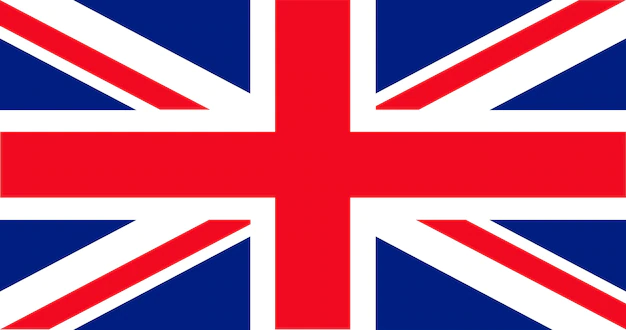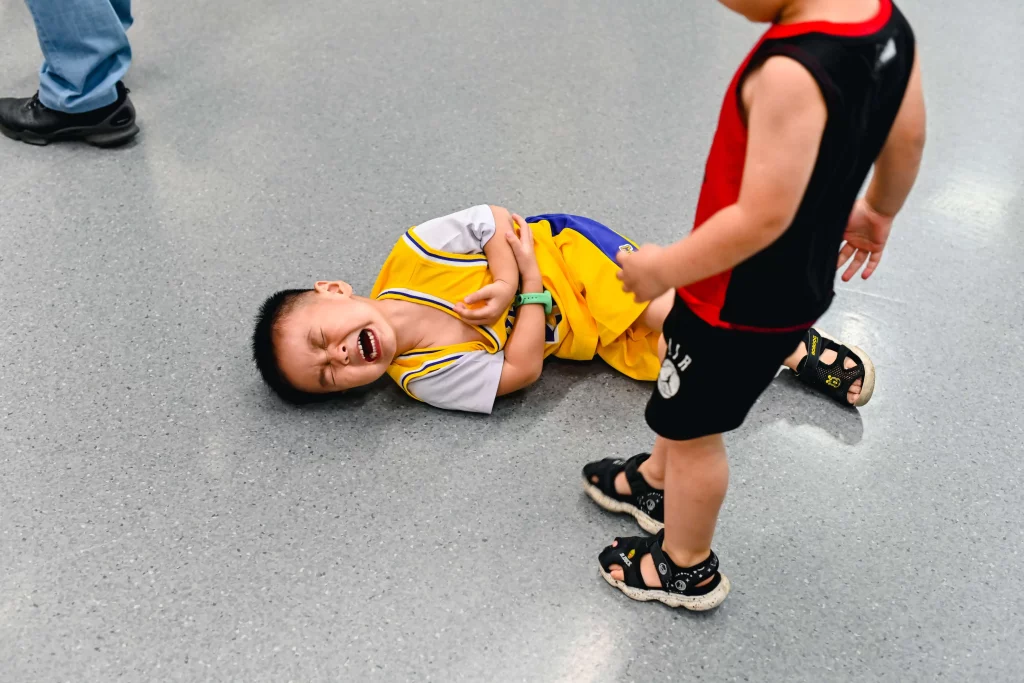Children Dentistry Pedodontics
FIRST DENTAL EXAMINATION
The first dentist examination is recommended after the first deciduous tooth is (usually between 6 months and 1 year old). It is very important for children to meet the dentist in a fun game environment without feeling pain and to be able to go to the dentist comfortably throughout their life.
- How to clean your baby’s mouth and teeth with brush and paste
- Preventing the transmission of bacteria from mother to baby
- Limitations of bottle and pacifier use
- Harmful habits such as lip and finger sucking
- Explaining the child’s oral and dental development and the necessity of visiting a dentist at what intervals
- Mothers and fathers are informed about nutrition and preventive practices that should take place to prevent tooth decay.
Oral And Dental Health In Babies And Children
Baby Teeth: Healthy Children’s Teeth Are No Coincidence
Even though baby teeth are only there for a short time, they are crucial for a child’s health and growth. Teeth enable our newborns to consume wholesome meals and develop speech. They provide room for permanent teeth to erupt up until adolescence.
Children may experience pain and discomfort as their baby teeth begin to deteriorate.
It may also increase the probability of developing more severe dental issues that could last until adulthood. Parents can prevent baby teeth decay with proper dental hygiene habits and a balanced diet.
You should make your child’s first trip to the dentist happen by the time they turn two. It will promote good oral hygiene practices and help lower the incidence of tooth decay. According to your child’s specific needs, the dentist can advise you on how frequently your child should undergo checkups.
Kids should visit the dentist at least once a year. As long as your child receives routine dental care, they will learn to expect it in their daily lives.
Encourage your kid to consider visiting the dentist a joyful experience rather than a danger. It will assist your children in developing good oral practices.
Here are some suggestions for improving your child’s dental visits:
- Before they make their first trip, bring your child along when you visit the dentist. This experience can lessen their anxiety when they return by encouraging your kid to acclimate to the surroundings.
- If at all feasible, seek the services of a pediatric dentist, a dentist who specializes in treating children.
- If your child becomes anxious, bring their favorite toy to comfort them.
- Consider how you feel about going to the dentist. Your kid could detect if you’re stressed out and worried. Maintaining your composure and portraying it as a good experience can encourage your child to feel the same.
We cannot emphasize enough the importance of brushing teeth in oral care. The brushing regimen for babies can be slightly different from adults.
Pick the Correct Toothbrush and Toothpaste.
- Once your baby’s 1st tooth erupts, it is critical to establish a healthy dental care regimen.
- Use just water and a soft-bristled toothbrush to clean your baby’s teeth. When a child is 18 months old, you can start giving them pea-sized, low-fluoride toothpaste.
- Children should start using fluoride toothpaste when they are six years old.
Create a Regular Brushing Schedule.
Establishing a brushing practice early is essential because the habits we adopt as children often persist throughout adulthood.
- It is best to brush their teeth after every meal and before going to bed.
- Don’t brush in a rush. To help your toddler understand how long brushing takes, play a song or set a timer (two minutes).
- Use toothpaste suitable for their age, about the size of a pea.
- When brushing, move the brush in a gentle circular motion, covering all the sides of the teeth and the gum line.
- After brushing, spit rather than rinse. It restores fluoride that protects teeth and is not washed away.
We know how much our babies love sugars. However, sugar exacerbates dental deterioration. The duration and frequency of sugar interaction with the teeth are equally as important as the sugar content in sweet foods and beverages.
Sticky candies and sweetened drinks in a feeding bottle are especially detrimental since they soak the teeth in sugar for a long time. Fruit juices and other beverages include acids that can damage teeth as well.
Milk and whole fruit both include naturally occurring sugars that are less inclined to result in tooth damage.
Sugars include glucose, fructose, dextrose, maltose, and hydrolyzed starch, substrates for oral bacteria that produce damaging acids and tooth decay.
- The best beverages for young kids are water and unsweetened milk; avoid beverages with added sugar.
- You can use boiled water, infant formula, or extracted breast milk for bottle feeding. However, giving your kids bottles of juice or other sweet beverages can worsen tooth decay.
- You can give babies fluids in a free-flowing cup without a valve starting at six months old.
- Encourage your infant to consume savory foods and drinks without added sugar once they begin eating solid foods. Ensure you know the quantity of sugar in rusks, baby beverages, formulated baby foods, and even savory ones. Make a habit of reading food labels.
- Give your kid sweets or fruit juice just during the day. Do not forget to dilute the juice with water to reduce sugar.
- Request family and friends to refrain from giving your kid cookies or candies when you are not around.
- For night-time feeding bottles, the best options include; breast milk, formula, or plain water.
- When giving your infant a bottle, always keep them in your arms. Do not let your infant take a bottle to sleep. Your baby’s mouth may become overfilled with milk, leading to tooth decay.
- Around six months old, your baby can begin using a sippy cup. After a year, you should no longer bottle-feed your child. If the sippy cup contains anything other than water, do not let your child carry it around.
- After your child turns one, you should only feed them with plain milk or water during meals.
- Only serve them flavored milk or juice with meals to avoid excessive sugar intake.
- Make sure your child does not develop a habit of using pacifiers. Around age 2, try to discontinue using a pacifier and discourage the practice of thumb-sucking, as this disrupts tooth alignment. Your doctor can advise you on the best pacifier to use. Use a fresh pacifier at all times. Avoid dipping it in honey or any other sugary liquid.
Dental Pain And Treatment In Children
A child suffering from dental pain can be going through several different types of dental problems. While some are identifiable due to their appearance, others are latent and can cause more pain without known or visible issues.
Bruxism: Bruxism is one of the most common dental issues among children, involves clenching and teeth grinding. Constant clenching can lead to pain in the teeth and around the jaw muscles.
- Cavity: Cavity, also known as tooth decay or caries, is another common dental problem in children which results in the chipping of tooth enamel or holes in the teeth. Cavities are visible and can be easily identified, which can help in immediate treatment.
- Root Canal: A root canal is a procedure targeted towards treating dental infection and saving a tooth from decaying, which, if not treated at its earliest, might require it to be removed. The procedure itself is not hurtful. However, anesthetic needles can scare off children, while postoperative pain can be common.
The reason for children having more dental issues is the fear of dentists. Here are some ways to reduce the fear and make children visit dentists more readily:
- Ensuring regular check-ups from the age of one can help children become familiar with their dentists. Hence, the fear of dentists in children reduces significantly as the bond develops and strengthens, just like friendship.
- A game environment should always be maintained around kids to help them stay more engaged.
- Since traditional dentistry equipment is overwhelming for children, laser therapy should always be preferred more for kids.
Emergency Response And Trauma
Tooth Accident: Prevention and Correct Behavior in an Emergency
Dental trauma can take many forms, some being more critical than others. Whenever an oral emergency arises, many people hesitate to call for help because they are unsure whether the issue requires immediate attention or if their medical insurance will cover the damage or not.
Call your dentist immediately or head to urgent care if you are in excruciating pain, have a fever, or suffering uncontrollable inflammation or bleeding. Some dental complications are potentially fatal.
Even while other issues might not be as critical, putting off dental treatment might lead to worse issues in the future. Get a thorough consultation to be on the safe side.
According to the ADA, oral emergencies include conditions that may be “life-threatening and require prompt treatment to slow or stop continuous bleeding or to relieve intense pain or inflammation.”
The following dental emergency might be life-threatening:
- Uncontrolled bleeding can result from injury, an accident, a medical condition, or another factor.
- Infections of soft tissues can cause inflammation within or outside the mouth and might put the child’s airway at risk. Keep in mind that dental infections can migrate to the soft tissues, producing inflammation without inducing discomfort.
While some dental issues might not be life-threatening, they need urgent attention. A few of these are:
- Severe tooth discomfort due to pulp degeneration or deterioration.
- Wisdom/third molar tooth discomfort.
- Dry socket or pain following extraction operation.
- Infections such as suppurate can cause throbbing pains and minor, localized swelling.
- Things that are trapped between both the teeth or within the gums that are painful or swollen.
- The teeth, connective tissue, or both are hurt or traumatized by tooth cracks, fractures, or missing fillings.
- Having loose orthodontic wire or other dental equipment irritates the gums or cheeks.
- Sports involving contact
- Car crashes
- Accidents at work
- Accidents such as falls, hits, or collisions during routine tasks or engaging in recreational activities
- Using your teeth improperly, such as when chewing on hard food items, opening bottles, containers, or hard nuts, or even biting nails
- Pain in the jaw joint or jaw locking
- The longer dental problems are left unattended, the more probable they will result in irreversible damage or require extensive and costly procedures.
Toothache
Emergency medical attention might not always be necessary for toothaches. But if you neglect it, a toothache might signify something more severe or result in worse dental issues. Tooth pain may be brought on by various conditions, including periodontitis, nasal congestion, fractured or broken teeth, inflamed pulp, debris in interdental spaces, and oral infections.
Always call your dental professional if you are experiencing a toothache; they will be able to advise you on whether you require emergency attention.
Try these suggestions to lessen the discomfort of a toothache:
- Use interdental cleaners to get rid of any food fragments that may be hurting you that are stuck between teeth.
- Rinse thoroughly with salt water.
- Consider taking acetaminophen or any other prescribed painkillers.
- Aspirin might irritate the tissue if you apply it to the painful region.
- If there is any gum swelling, use a cold compress. Inflammation and an abscess can both cause swelling.
- Schedule a visit with your dentist right away if the discomfort continues.
Tooth Damage
Several different types of dental trauma can lead to cracked, fragmented, or blown completely out-of-the-socket teeth that have been knocked out of their proper position. Following are a few ideas to keep in mind:
Missing Tooth
If there is bleeding after a baby’s tooth is blown out, exert pressure. Next, make a quick call to your child’s dentist. Attempting to replace a baby tooth might harm the permanent tooth that is forming under the gums.
If you lose a permanent tooth, you must take the following actions:
If at all feasible, find the tooth right away. The crown, not the root, should hold the tooth.
Avoid rubbing or removing any tissue fragments from the roots. Additionally, avoid drying the teeth with chemicals or using soap on them.
Replacing the tooth requires placing and holding it in the cavity. The tooth must always be wet. If you cannot insert it, hold your teeth in the mouth adjacent to the cheek.
However, if you cannot do this, put the teeth in a clean container in a preservation solution, milk, or saliva. Keep the tooth out of the tap water.
Visit the dentist immediately. The tooth should be removed from the mouth within thirty min, although it may still be possible to save your teeth even an hour later.
Fractured or Chipped Teeth
The most frequent dental damage is broken, fractured, or chipped teeth, and most instances are mild. It is crucial to remember that receiving immediate care can help avoid infection and even protect the tooth. Following are a few guidelines to remember if you have teeth that are broken or chipped:
Warm water should rinse your mouth as you check for discomfort, soreness, or sensitivity.
If you were struck in the face, apply cold compresses to the region to minimize swelling.
You should make an appointment with your dentist as early as you can. Bring the tooth fragment if you can find it.
Chewed or Lacerated Lips, Cheeks, or Tongue
First, maintain your composure if you chew or bite your lip, tongue, or cheek. Even small lesions in the oral tissues may appear more severe than they are due to the abundance of veins and arteries.
Place a wet cloth or gauze on the wounded area, stop bleeding with pressure, and gently clean the region. After that, place a cold compress over the region to lessen inflammation.
The majority of oral wounds heal with time and are not severe. Prevent infections by keeping the affected area clean. To hasten the healing process, wipe every day with brine solution or a 1:1 mixture of water and hydrogen peroxide.
Consult your physician or go to urgent care at the closest hospital if the bleeding does not stop. Whereas if a deeper cut covers the face or causes a laceration penetrating the cheek or lip, it is advised to notify a healthcare professional.
Additionally, reach out if you notice any infection-related symptoms, such as inflammation, redness that is expanding around the incision, fever, abscess, or persistent tenderness and discomfort.
The orthodontist can advise you on how to proceed when you or your kid has orthodontic brackets with a broken wire or loose bracket pushing or piercing the gums or cheeks. If you ask them, they can give you some softened wax to cover the piercing bracket and advice on dealing with the issue.
Certain behaviors can increase the likelihood of harming your Hollywood smile, be it a fall, enjoying violent sports, or chewing something rock-solid.
You can avoid dental accidents by following these recommendations:
- Use a mouthguard if you participate in sports or any physical activities.
- Always buckle up whether operating a vehicle or riding in one—secure young kids in a baby carrier.
- Your home should be childproofed to help avoid accidents like falls.
- Plan family dentist appointments regularly.
- Avoid biting on objects or foods hard enough to break your teeth, such as ice cubes, walnuts, and hard sweets.
- Do not try to tear, rip, or cut anything with your teeth.
Your dentist can guide you with the right course of action; therefore, you should call them as soon as possible. We advise reading and familiarizing yourself with the dental healthcare plan. It will offer specifics on how dental accidents are compensated.
The most crucial thing to keep in mind in the event of dental emergencies is that taking control of the situation immediately will help you avoid more severe issues down the road. If the situation is serious, you can visit the emergency room at the closest hospital.
If you have a dental emergency that isn’t life-threatening, call your dentist immediately so that they may either encourage you to schedule an appointment or assist you in handling the condition yourself.
DENTAL HEALTH DURING PREGNANCY
Dental health is important because it impacts our ability to speak clearly, eat properly, and smile without pain; moreover, it is vital for our overall well-being and bodily hygiene.
However, despite knowing and understanding the importance of dental health, many people still regard it as non-essential when it comes to basic hygiene.
That is where things go wrong. Not many people realize that ensuring good dental and oral health is vital for keeping healthy overall. In fact, bad dental hygiene can expose you to much riskier health problems.
As bad dental and oral health have increased chances of leading to much more severe health issues in your body – it is all the more important to look after it when you are pregnant. You simply cannot compromise on your well-being, no matter how difficult it is to look after your dental health when pregnant.
A healthy diet and regular dental visits are important for maintaining good oral health during pregnancy. But it is also important to know what can damage your teeth and gums long term. Many such things are already prohibited during pregnancy for one reason or another. So knowing that they also disrupt your dental hygiene is a motivating factor.
Hence, avoid smoking, coffee, tea, soda pop (especially if they contain sugar), red wine, or beer – even certain spices like cumin or chili powder. The list goes on! It is best if you do your research and consults your health expert for the best advice. Talk to your dental and oral hygiene practitioner for a more specialized and targeted approach.





